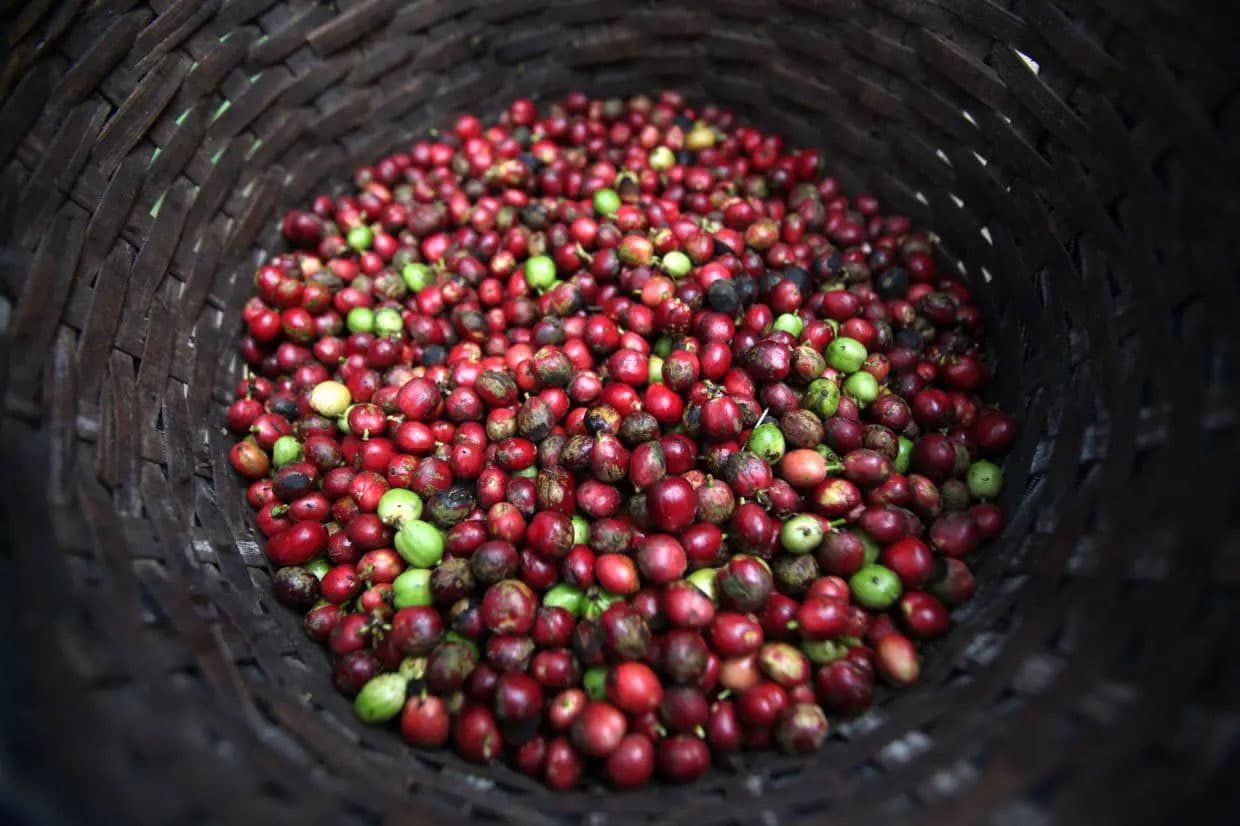In a significant blow to the global coffee market, the Vietnamese coffee trading company Volcafe has reported that Vietnam’s Robusta coffee crop for the 2024/25 season is expected to reach only 24 million bags. This marks the lowest production level in 13 years, primarily due to severe drought conditions that have caused “irreparable damage” to coffee blossoms in one of the world’s largest Robusta-producing regions.
Impact of Drought on Vietnamese Coffee
The adverse weather conditions have significantly impacted Vietnam, the world’s largest producer of Robusta coffee beans. The lack of rainfall has not only reduced the quantity of the crop but has also affected its quality. This situation highlights the vulnerability of coffee production to climate change, where unpredictable weather patterns can lead to substantial agricultural losses.
El Niño, a recurring climate pattern that warms the ocean surface in the central and eastern tropical Pacific, has exacerbated the drought conditions in Vietnam. This phenomenon typically brings heavy rains to Brazil, another major coffee producer, while inducing droughts in Southeast Asia, thus adversely affecting Vietnam’s coffee crop (TradingView) (Barchart.com).
Global Implications
The reduced output from Vietnam is expected to contribute to a global deficit of 4.6 million bags of Robusta coffee for the 2024/25 season. Although this is an improvement compared to the 9 million bag deficit in the 2023/24 season, it still represents the fourth consecutive year of shortages in the Robusta market (TradingView) (Barchart.com).
The global coffee market is already under pressure from various factors, including fluctuating weather patterns in key producing regions and increased demand for coffee worldwide. According to the International Coffee Organization (ICO), global coffee exports have seen a significant rise, which suggests that demand remains robust even as supply becomes more constrained (TradingView).
Economic Repercussions
For Vietnam, the economic repercussions of a reduced coffee crop are substantial. Coffee is a major export commodity for the country, and a significant decrease in production can impact the livelihoods of millions of farmers. The drought conditions have forced many farmers to rethink their strategies, including possibly diversifying crops or investing in more resilient coffee varieties (Barchart.com).
Mitigation and Adaptation Strategies
To combat the adverse effects of climate change on coffee production, several strategies are being considered and implemented:
- Irrigation and Water Management: Enhancing irrigation systems to ensure a consistent water supply during dry periods can help mitigate some of the impacts of drought.
- Shade-Grown Coffee: Implementing shade-grown coffee practices can help protect coffee plants from extreme temperatures and reduce water evaporation from the soil.
- Resilient Varieties: Investing in research to develop coffee plant varieties that are more resistant to drought and heat can provide long-term solutions to climate-induced challenges.
- Diversification: Encouraging farmers to diversify their crops can reduce the economic risks associated with reliance on a single commodity.
Future Outlook
The situation in Vietnam underscores the urgent need for the global coffee industry to adapt to changing climatic conditions. As climate change continues to pose significant threats to agricultural production, countries that rely heavily on coffee exports must invest in sustainable farming practices and resilient agricultural infrastructure.
The global coffee community, including major stakeholders such as coffee producers, traders, and researchers, must collaborate to develop and implement strategies that can safeguard the future of coffee production. This includes sharing knowledge, investing in innovative agricultural technologies, and supporting policies that promote environmental sustainability.
In conclusion, the projected decline in Vietnam’s Robusta coffee crop for the 2024/25 season serves as a stark reminder of the impacts of climate change on global agriculture. With proactive measures and international cooperation, the coffee industry can navigate these challenges and ensure a sustainable future for coffee production worldwide.

